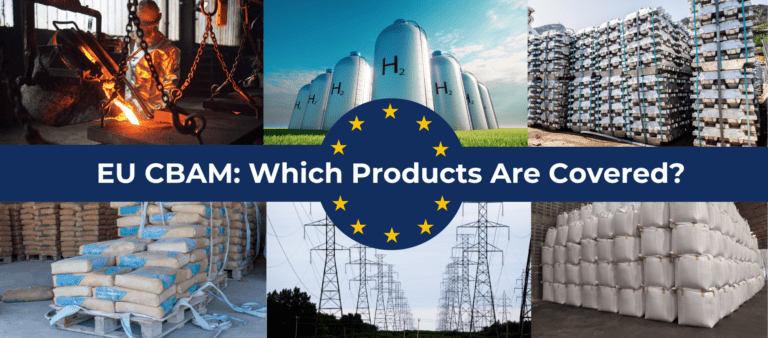AI That Simplifies Trade Compliance and Drives Growth
Top 5 Challenges in Global Trade Compliance and How to Overcome Them
-
Freya Jane
- Director of Customer's Success
Do you feel uncertain while navigating global trade compliance complexities? You are not alone; it is easy to become confused by the intricate landscape of rules, tariffs, and customs processes. Non-compliance may lead to financial strains, reputational harm, and operational difficulties.
In this blog article, we will break down the top five trade compliance issues that companies involved in international trade encounter and look at the ways to get beyond them.
Understanding Global trade compliance
Global trade compliance is the process of ensuring that all importing and exporting activities are compliant with the trade laws and regulations of all the countries involved. It includes:
Customs regulations
Export control
Import duties
Tariffs
For businesses that trade internationally, trade compliance is essential because non-compliance can result in hefty fines, penalties, and legal problems. Businesses can reduce risks, optimise operations, and safeguard their brand by putting in place strong trade compliance software.
Want to learn more about Trade Compliance? Read out our comprehensive guide.
5 top challenges in global trade compliance and their solutions
The top trade compliance challenges and solutions to overcome are listed below:
1. Adapting to uncertainty in trade and regulation
Challenge
The cross-border trading environment is dynamic as the rules, taxes, and quotas are continuously changing. International businesses may experience uncertainty due to abrupt changes brought on by geopolitical conflicts and economic volatility.
Businesses are required to reconsider their supply chains and compliance strategy as a result of the recent trade war between the United States and China, which has resulted in hefty tariff rises.
Solution
Proactive monitoring: Keep yourself updated on the latest trade regulations and developments via reliable sources.
Risk assessment: Carry out regular risk assessments to identify issues in the supply chain, such as currency fluctuations, geopolitical risks, etc.
Agile supply chain management: Implement innovative supply chain strategies that are capable of adapting to the changing landscape. You can use advanced technologies such as Customs Declaration Software (CDS) to improve the visibility of your supply chain and ensure compliance with the trading requirements.
Learn more about how CDS performs Customs Declaration efficiently in 5 steps: Click Here!
2. Classifying goods
Challenge
Accurate goods classification is crucial for determining the relevant tariffs, levies, and laws. Errors in product classification can lead to significant financial fines, delays, and possible legal problems. Misclassifying a commodity as a lower-tariff item, for instance, can lead to significant fines and penalties.
Solution
Invest in a tool: Automate product classification and produce precise Harmonised System (HS) codes by using specialised software such as iClassification offered by iCustoms. By using product descriptions and specifications, these tools can assist in determining the correct codes, lowering the possibility of mistakes.
Consultation with experts: To guarantee correct goods classifications, consult customs brokers and trade compliance specialists. These experts can offer advice on difficult classification problems, like those involving dual-use items or new technology.
Regular training: Give your staff members regular training on product classification laws and guidelines. This guarantees that staff members are prepared to classify objects accurately and steer clear of expensive errors.
Document record: Keep thorough records of all product classifications, including invoices, certificates of origin, and supporting paperwork. These documents can be used to support assertions and provide defence in the event of an audit or investigation.
3. Legal and civil penalties
Challenge
In global trading, not complying with trade rules and regulations may lead to serious consequences, such as fines, seizures, and even criminal charges. Businesses must follow a complicated network of laws and regulations, including import limitations, export controls, and anti-corruption statutes.
Solution
Strong compliance program: Put in place an innovative compliance program with well-defined internal controls, policies, and processes.
Frequent audits: To find and fix compliance shortcomings, conduct routine internal audits; these can assist in making sure that all the processes are adhering to the protocols.
Third-party verification: Hire outside auditors to evaluate adherence and spot possible risks. This can offer an unbiased evaluation of the business’s compliance program and point out areas in need of development.
4. Complicated customs declaration procedure
Challenge
Customs declaration procedures and regulations vary widely depending on the location. The time and expenses associated with international trading are significantly impacted by taxes, customs duties, and documentation requirements. Moreover, imports and exports may also face restrictions imposed by customs authorities, such as strict rules to prevent illegal activities, smuggling, and counterfeiting.
Solution
Use customs declaration software: Use specialised software to automate documentation, expedite customs clearance procedures, and monitor shipments in real-time.
Collaborate with expert customs brokers: Hire seasoned customs brokers who can handle intricate customs processes, create precise documents, and speak on behalf of the business to customs officials.
Keep up with customs regulations: To guarantee conformity, keep an eye on modifications to customs laws and practices.
Ensure regulatory compliance and accelerate your growth with iCustoms. Start Now!
5. Protecting supply chain and preventing counterfeiting
Challenge
Global supply chains are susceptible to terrorism, product diversion, and counterfeiting, among other security risks. In addition to posing serious health and safety hazards, counterfeit products can lead to non-compliance, undermine market share and harm a brand’s reputation.
Solution
Put in solid security measures: To safeguard premises and inventory, put in place robust security measures, including physical security and access controls.
Perform audits of suppliers: Perform thorough audits of suppliers to evaluate their quality control procedures, security protocols, and adherence to legal and ethical requirements.
Make use of counterfeiting technology: Use cutting-edge technologies to track and authenticate products.
Wrapping up
A proactive and planned approach is necessary to successfully navigate the complicated world of global trade compliance. Businesses may reduce risks, streamline supply chain operations, and secure long-term success in the global marketplace by comprehending the main issues and putting the solutions described in this blog article into practice.
Do not allow difficulties with compliance to hinder your business growth. Start down the path to a more profitable and seamless international commerce experience with iCustoms. To find out how our experience can assist you in navigating the challenges of global trade, get in touch with us right now.
You may also like:
Tired of compliance issues, delays, and fines? Streamline your operations with iCustoms.
Reduce costs, minimise risks, and improve efficiency
Subscribe to our Newsletter
About iCustoms
Tired of compliance issues, delays, and fines? Streamline your operations with iCustoms.
Reduce costs, minimise risks, and improve efficiency





